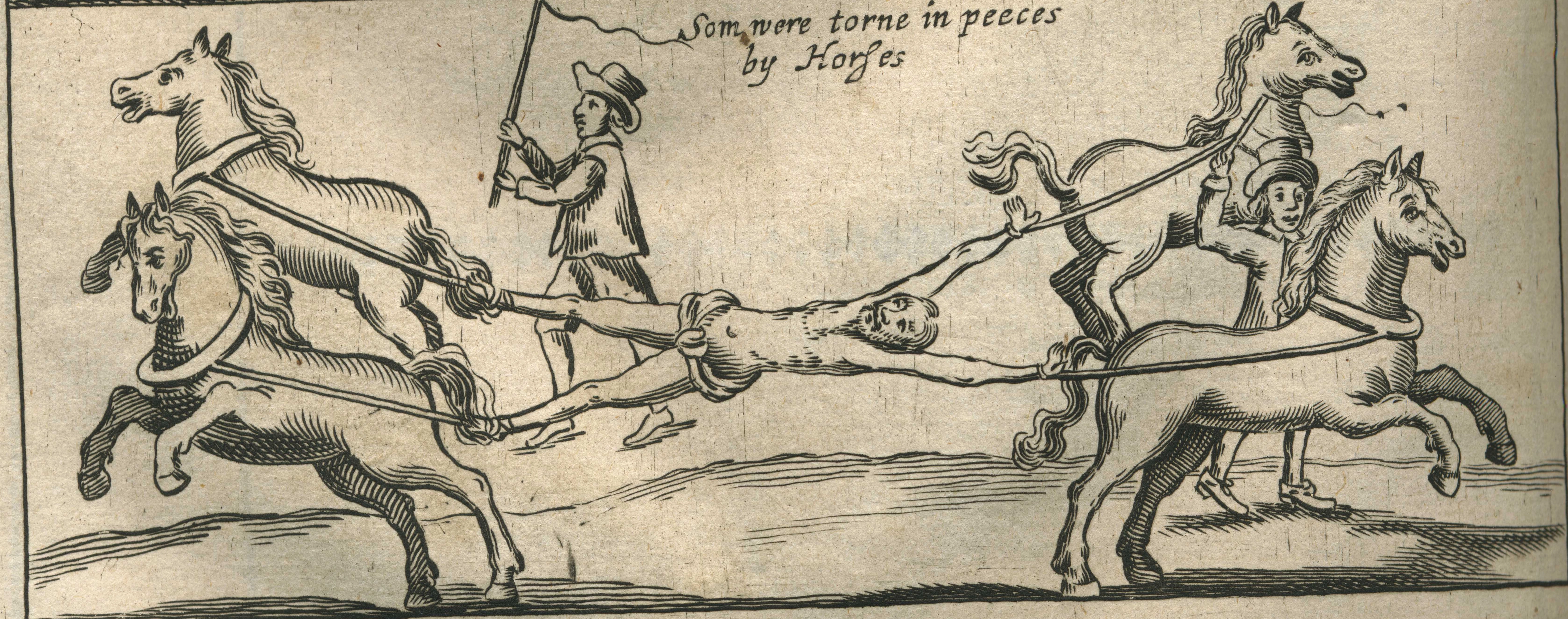1. Jan Frans van Dijkhuizen, Renaissance Quarterly, 67.1 (Spring 2014), pp. 306-307. Dr. van Dijkhuizen is a lecturer and post-doctoral researcher at Leiden University. He is the author of Pain and Compassion in Early Modern English Literature and Culture (D. S. Brewer, 2012).
Soundbite: a thoroughly researched and highly original addition to the growing scholarly conversation on conceptions of suffering, embodiment, and sensory experience in early modern culture
2. Catherine E. Thomas, Sixteenth Century Journal, 45.3 (Autumn 2014), p. 733. Dr. Thomas is associate professor of English at the College of Charleston. She and Jennifer Feather are the co-editors of Violent Masculinities: Male Aggression in Early Modern Texts and Culture (Palgrave Macmillan, 2013), which I’ve written a short commentary on here. Soundbite:
a compelling piece of scholarship that ambitiously analyzes multiple discourses around pain, pleasure, and power. At times the argument feels more suggestive than conclusive
3. Sarah Toulalan, Theology and Sexuality, 20.3 (September, 2014), pp. 257-9. Dr. Toulalan is a senior lecturer at the University of Exeter. She is the author of Imagining Sex: Pornography and Bodies in Seventeenth-Century England (OUP, 2007), which I have written a short commentary on here. Soundbite:
a work of outstanding scholarship in which the author teases out differences between southern / Catholic / Latin and northern / Protestant / vernacular thinking about and attitudes towards both the infliction of physical pain and suffering on others and the deliberate infliction of pain and suffering on oneself.
4. Leah S. Marcus, ‘Recent Studies in the English Renaissance’, Studies in English Literature 1500-1900, 54.1, (Winter 2014), pp. 193-242; 193-4. Leah Marcus, Edward Mims Professor of English at Vanderbilt University, is the author of a number of works on the early modern period, including The Politics of Mirth (University of Chicago Press, 1986) and Unediting the Renaissance (Psychology Press, 1996). Soundbite:
I somewhat distrust the author’s generalizations because several of them appear to come from typing keywords into the Early English Books Online searchable database … But Yamamoto-Wilson does have some fascinating tidbits
I’ve written a few comments in response to Professor Marcus’s review here.
5. Thomas Palmer, Journal of Theological Studies, 66.1 (April 2015), pp. 494-6. Palmer is apparently associated with St. Cross College, Oxford, but other than that I can find no information about him. Soundbite:
The author … chooses rather to assume than to prove his major interpretative principle, that the ascetic value ascribed to suffering in Christian thought and practice may be understood as the expression of masochistic or sadistic tendencies
I’ve written a few comments in response to Palmer’s review here.


Comments